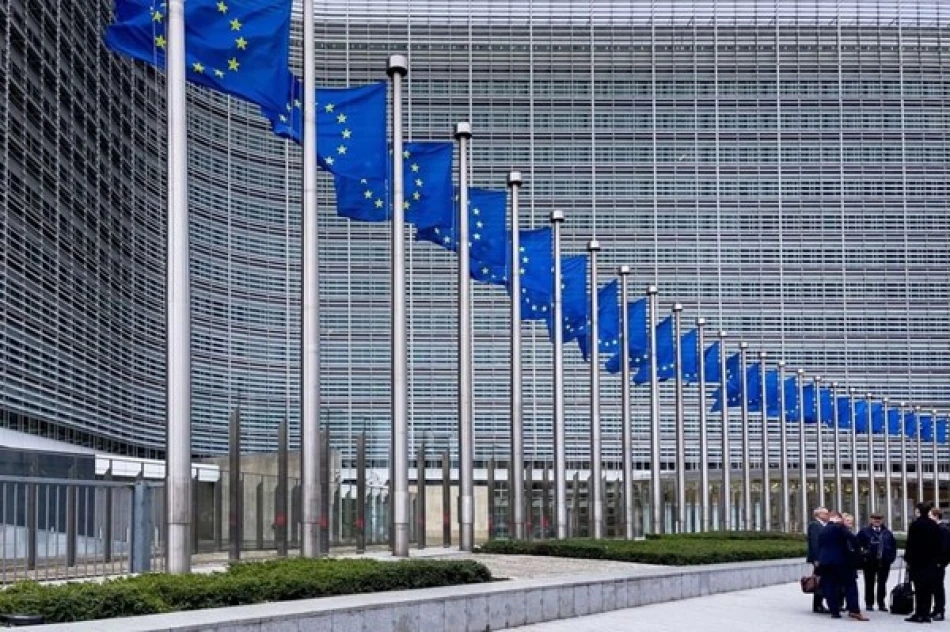
EU Council Calls Emergency Meeting to Discuss Washington Talks on Ukraine
Europe Scrambles to Decode Trump's Ukraine Peace Strategy After High-Stakes White House Summit
European Union leaders are convening an emergency virtual meeting Tuesday to assess the implications of a pivotal White House summit that brought together President Donald Trump, Ukrainian President Volodymyr Zelensky, and key European allies to discuss ending the war in Ukraine. The hastily arranged EU session signals growing European anxiety about being sidelined in any potential peace negotiations that could reshape the continent's security architecture.
High-Level Diplomacy Behind Closed Doors
Monday evening's White House gathering included leaders from France, Italy, the United Kingdom, and Finland, alongside NATO Secretary-General and European Commission President. The summit focused on exploring pathways to end the Ukraine conflict and establish a framework for long-term stability and security across Europe.
European Council President Antonio Costa announced the emergency EU meeting, emphasizing that the bloc would continue collaborating with the United States to achieve "lasting peace that guarantees Ukraine's and Europe's vital security interests."
Europe's Strategic Dilemma
The timing and urgency of Tuesday's EU meeting reveal deeper concerns about European influence in shaping Ukraine's future. Unlike previous diplomatic initiatives where European leaders often took the lead—such as the Minsk agreements or various ceasefire negotiations—this White House-centered approach puts Trump firmly in the driver's seat.
Historical Precedent and Current Stakes
This dynamic echoes historical moments when major powers negotiated European security arrangements with limited continental input, from Yalta in 1945 to various Cold War summits. European leaders appear determined to avoid being relegated to secondary status in discussions that will fundamentally affect their security environment and economic relationships with both Ukraine and Russia.
Market and Economic Implications
Financial markets are closely watching these diplomatic developments, with European defense stocks, energy companies, and reconstruction-focused firms experiencing volatility based on peace negotiation speculation. A swift resolution could trigger massive capital flows toward Ukrainian reconstruction projects, while prolonged uncertainty continues to strain European budgets supporting Ukraine's war effort.
The EU has committed over €50 billion in aid to Ukraine, making any peace settlement a significant financial consideration beyond pure security concerns. European taxpayers and businesses are eager for clarity on whether this massive investment will yield stability or require indefinite continuation.
Trump's Negotiating Position
The former and now returning president's approach represents a stark departure from the Biden administration's strategy of extensive consultation with European allies before major Ukraine policy decisions. Trump's preference for direct, high-profile negotiations could accelerate diplomatic progress but risks alienating European partners whose long-term support remains crucial for any sustainable peace agreement.
This summit structure—bringing together select European leaders rather than working through established EU or NATO channels—suggests Trump intends to leverage personal relationships and bilateral pressure rather than multilateral consensus-building that has characterized Western Ukraine policy since 2022.
What's at Stake for European Unity
Tuesday's emergency meeting will likely focus on ensuring European interests aren't sacrificed for expedient deal-making. The inclusion of both EU and non-EU European leaders (notably the UK) in Monday's summit complicates traditional European coordination mechanisms and may force the bloc to articulate its positions more assertively.
The outcome of these discussions will significantly influence whether Europe maintains meaningful input into Ukraine's future or finds itself implementing agreements negotiated primarily between Washington, Kyiv, and Moscow. For European leaders, maintaining relevance in these talks isn't just about prestige—it's about ensuring continental security arrangements reflect European strategic interests rather than solely American geopolitical calculations.
Most Viewed News

 Layla Al Mansoori
Layla Al Mansoori






